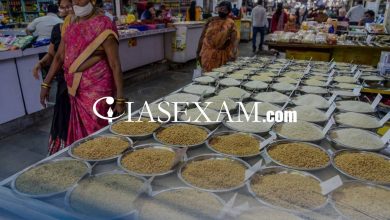Draft National Policy for Rare Diseases released
The government will provide a financial support of up to Rs 15 lakh under its Rashtriya Arogaya Nidhi scheme for one-time treatment of rare diseases, according to the much awaited draft Rare Diseases Policy.
Under the draft National Policy for Rare Diseases released recently, beneficiaries would not be limited to Below Poverty Line families, but will also cover 40 per cent of the population eligible as per norms of the Ayushman Bharat-Pradhan Mantri Jan Arogya Yojana for their treatment in government tertiary hospitals only. The ministry has put up the draft policy on its website and sought comments and suggestions over it by February 10.
The Union Health Ministry intends to notify certain medical institutes as Centers of Excellence for Rare Diseases. These include AIIMS, New Delhi, Maulana Azad Medical College, New Delhi, Sanjay Gandhi Post Graduate Institute of Medical Sciences, Lucknow, Post Graduate Institute of Medical Education and Research, Chandigarh and four others.
According to the draft policy – the cost of treatment of the patients in these Centres of Excellence will be met out of donations received through the online digital platform. Rare diseases categorized under Group 1, such as Lysosomal Storage Disorders (LSDs), immune deficiency disorders, chronic granulomatous disease, osteopetrosis, Fabry’s disease and liver or kidney transplant, will be funded under the scheme.
The policy cited “resource constraints” to provide financial assistance to rare diseases like Gaucher’s disease, Spinal Muscular Atrophy, Hurler Syndrome and Wolman disease that require lifelong treatment.
Rare diseases are severe and chronic illnesses and often life-threatening. Patients suffering from rare diseases, especially Lysosomal Storage Disorders (LSDs), often lead a very incapacitating life. There are about 50 LSDs out of which only five have approved treatment options available in India.
Holding that rare diseases place a major economic burden on any country and especially in resource-constrained settings, the draft policy states that at present very few pharmaceutical companies are manufacturing drugs for rare diseases globally and there are no domestic manufacturers in India. Keeping in view the lack of availability of epidemiological data on rare diseases, constraints on resources and competing health priorities, the government is in the process of setting up a National Registry for Rare Diseases at ICMR with the objective of creating a database of various rare diseases.
Steps have already been taken in this direction by ICMR. Over a period of time, the registry is expected to yield enough information to be able to arrive at a definition of rare diseases best suited to the country.
SOURCE: The Hindu, Business Standard





.png)



